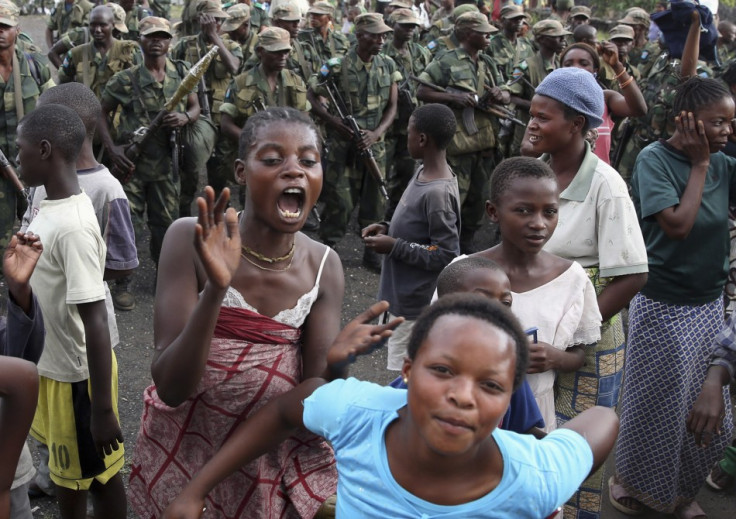DR Congo: UN to End Military Cooperation with Kinshasa over Mass Rapes
UN Monusco peacekeeping troops say DR Congo army must prosecute soldiers accused of 126 rapes and looting

The UN has warned Democratic Republic of Congo's army that it will end cooperation with two of its battalions unless swift legal action is taken against soldiers accused of mass rape.
DR Congo troops have been accused of killing, raping, looting and other human rights violations against civilians in the eastern Minova region, while fighting an insurgency by M23 rebels in 2012.
The UN said it had documented at least 126 rapes perpetrated by soldiers, as they moved south in retreat from the city of Goma in November.
"Since nothing sufficient has happened at this stage we have already put two units of the armed forces of Congo on notice that if they do not act promptly we shall cease supporting them," a UN official in New York said. "They have to shape up."
The UN has 17,000 peacekeeping troops in the country, tasked with maintaining stability and assisting the government against rebel groups.
During the 2012 insurgency, UN forces - known by their acronym Monusco - initially backed Kinshasa troops with helicopters to attack M23 positions near Goma.
But as government soldiers fled the city, Monusco troops gave up the fight, claiming they could not "substitute for the efforts of national forces".
Goma, capital of the mineral-rich eastern Congo region, fell on November 20.
Believed to be backed by Rwanda, the M23 rebellion began in April 2012, fuelled by the defection of hundreds of troops from the Congolese army.
The defectors were mainly former fighters of another rebel group that had been incorporated into Kinshasa's regular forces in March 2009 under an agreement they later claimed the government failed to uphold.
The UN brokered an accord between regional powers to end the conflict and Secretary-General Ban Ki-moon called for a new "intervention brigade" to be send in the region.
© Copyright IBTimes 2025. All rights reserved.






















